Did you also notice "Hexagons" everywhere ? (Thanks WikiMedia! <3!)

Hexagons are in the Polygons category. They can be found in bee's hives and are called "honey comb" infill in 3D-printing. 
This "natural" shape tesselates perfectly in 2D...(which is a complete subject) ok. But what about 3D tessalation ? Crystals do it, and this pattern came to attention long time ago already. Crystals take "Polyhedrons" category shape in geometry. By curiosity, I have been reading about Polyhedrons and playing in Blender with them "a bit". Dodecahedrons have 5 edge faces, but...
(easy to understand if you read the documentation (aka RTFM)) > https://en.wikipedia.org/wiki/Polyhedron 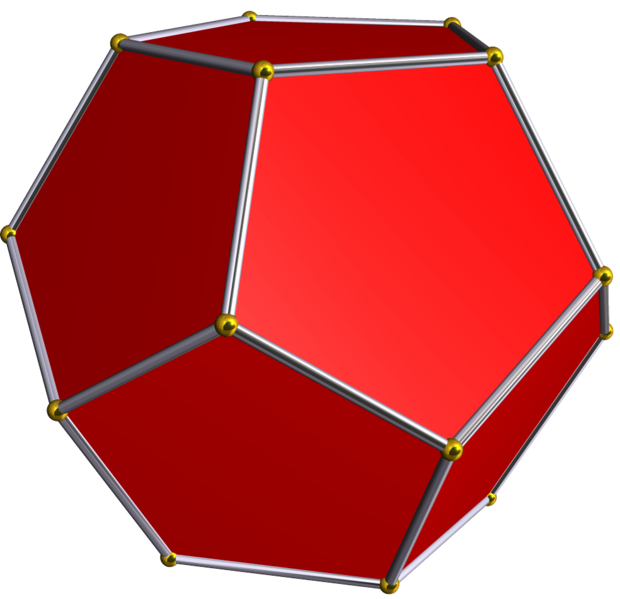
Dodecahedrons have 12 faces, and the Rhombic one has Lozenge faces : "Rhombic Dodecahedron", chosen to play with in openSCAD THEN Blender in fact, because with openSCAD I was able to obtain exact and very precise vertices coordinates, knowing that going too far after the comma is not needed because most of the 3D-printers extrude from 0.1mm to 1mm and most objects are around 10 cm... so, to be clear, with openSCAD scripts, one can compute vertices X Y and Z values. Other reasons to choose the Rhombic Dodecahedron are about dimensions formulas !
Quite cool. Look at the Dimensions section on the Wikipedia page !
It can be cutted in half, or bars can follow the edges to build a truss-style structure (cf.: RD-Block). 
I found a script by "pvillano" at github and various objects made by geometry fans with the "math art" category of 3DP objects.Then I came with some Lego-style use of it by adding triangular "pins" which would plug into triangular holes... but tessalation is not so easy in 3 dimensions... Legos, plug in only on 2 faces for most simple pieces, top and bottom. While Rhombic Ds would have to be pluggable on 12 faces...
SO... I searched (some weeks doing other things aside).
Then I found this pattern : on each lozenge face, a triangle out (pin) and a triangle in (hole): But if you look carefully, the placement of out pins and holes had to be inverted horizontally, so the pins are all up on top, well anyway "it was a headache"... Even now it's a bit hard to explain !
Here it is : The Rhombic Dodecahedron Linkage !
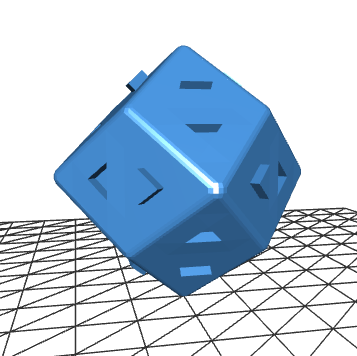
On the right on this picture, 3 of this .STL :
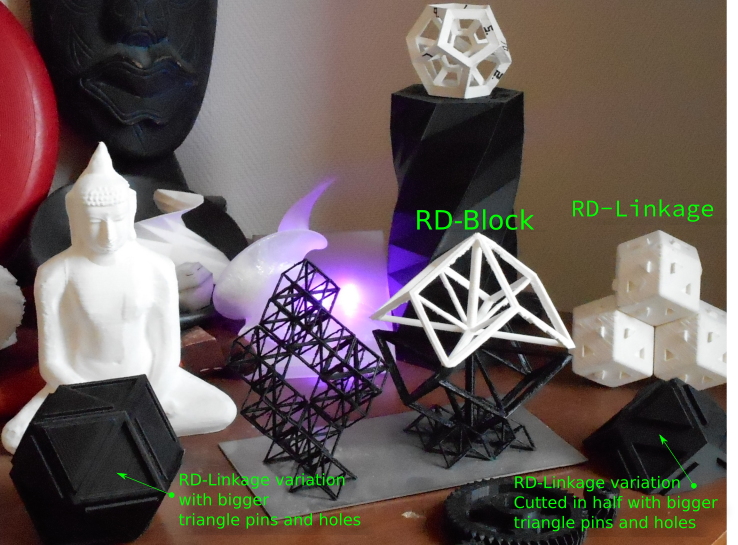

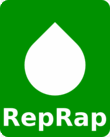
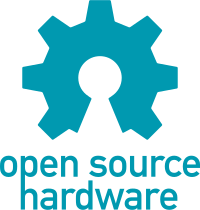
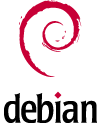

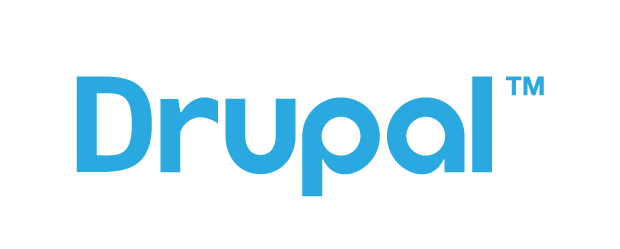

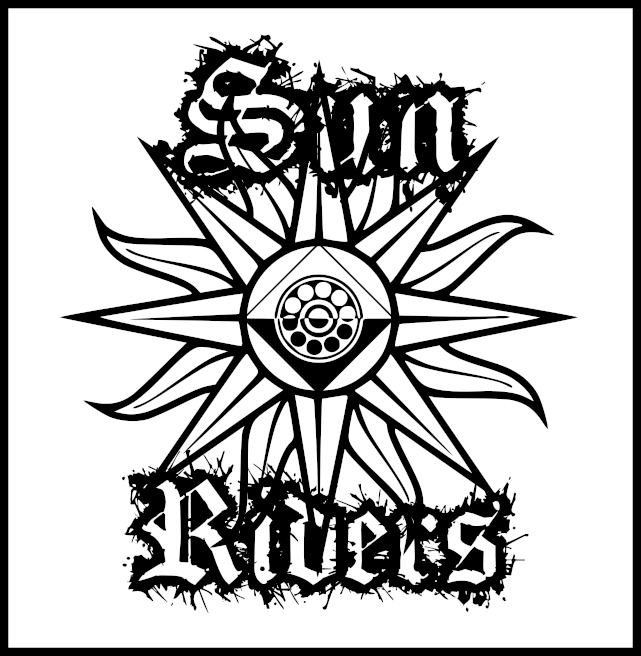
Recent comments